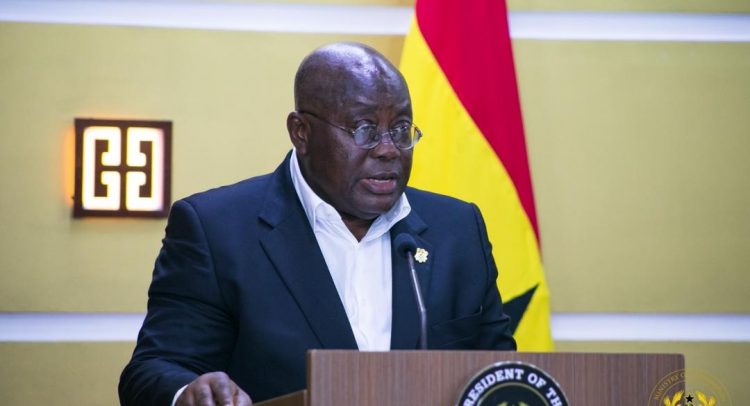President Nana Addo Dankwa Akufo-Addo will be addressing the nation on the economy today Sunday, October 30, 2022 after broad consultations with key stakeholders of the economy.
Cabinet ended a three-day retreat on the economy on Saturday October 29 and Information, Minister Kojo Oppong Nkrumah after the retreat said, President Akufo-Addo had settled on key decisions aimed at responding strongly to the impact of the global economic challenges on Ghana.
“We’ve wrapped up a three day cabinet retreat during which President Akufo-Addo has settled on key decisions aimed at responding strongly to the impact of the global economic challenges on Ghana.
“This follows a week of interactions with various economic actors and inputs from the IMF negotiations so far.
“Tomorrow evening we start the exercise of rebooting as the President outlines measures.”
President Akufo-Addo announced this on October 27, 2022 that “I will be addressing the nation on the economy on Sunday, 30th October, 2022 at 8pm. Watch it live on @NAkufoAddo, GTV and all major news networks across the country. #BouncingBackTogether.”
The Vice President, Dr Mahamudu Bawumia had mentioned some of the areas the President is likely to touch.
According to the Vice President, President Akufo-Addo would provide details of these measures to address the current economic challenges.
Dr. Bawumia said this as a Guest Speaker at the Standard Chartered Bank Digital Banking, Innovation and Fintech Festival in Accra on Wednesday, October 26, 2022.
“So as we try to deal with the economic crisis globally, economies also have to re-position themselves to partake in the Fourth Industrial Revolution,” he added.
The Vice President further indicated that Government is considering a number of measures to tackle the current economic challenges and ensure fiscal and debt sustainability.
He pointed out that “We would also implement measures to further support domestic production and reduce imports, as well as tighten our current foreign exchange regime to prevent leakages.”
Dr. Bawumia mentioned that albeit it is not going to be easy but it needs to be implemented for the success of the nation and citizenry as it will require very bold, difficult, but firm decisions as it forms part of the discussions that government is having with the IMF.
“It will not be business-as-usual because there have to be some fundamental adjustments to the new global and domestic realities,” he warned.
The Vice President made a case for Ghana to have a second look at the foreign exchange regime.
According to him, the country cannot tackle the economic crisis without addressing the fiscal and debt sustainability, the production side as well as the foreign exchange regime.
He admitted that achieving fiscal and debt sustainability is not easy task saying that “Restoring fiscal and debt sustainability is not going to be easy, it will require very bold, difficult but firm decisions. I think these are part of the discussions that we are having with the IMF and I am sure once these are concluded it will be clear that it will not be and it should not be business as usual, because we have to adjust to the new global and domestics realities.
“What we are also seeing is that, the nature of production needs to change. Why do I say that?
“You are seeing Ghana consistently, over the last five years, having more and more trade surpluses but at the same time we have had these trade surpluses on our balance of payments.
“This is like the first time in about twenty years that we have had consistently, about five years of trade surpluses on our balance of payment, at the same time we are having a lot of current account deficits, which means that a lot of the foreign exchange that we are earning from our trade doesn’t stay in Ghana,” he said.
He stressed that “One of the areas where we have to address this is to reduce the import dependency that we have as a country. There is soo much when you look at the broad spectrum, from toothpick to tomatoes to rice and maize, and so there is a very high dependency but as the global economy is going to realign to the new reality with more self-reliance Ghana cannot be left behind.
“We also have to look very closely at how we enhance domestic production and reduce dependency on imports for commodities that we can very easily produce here in Ghana”.
By Vincent Kubi


